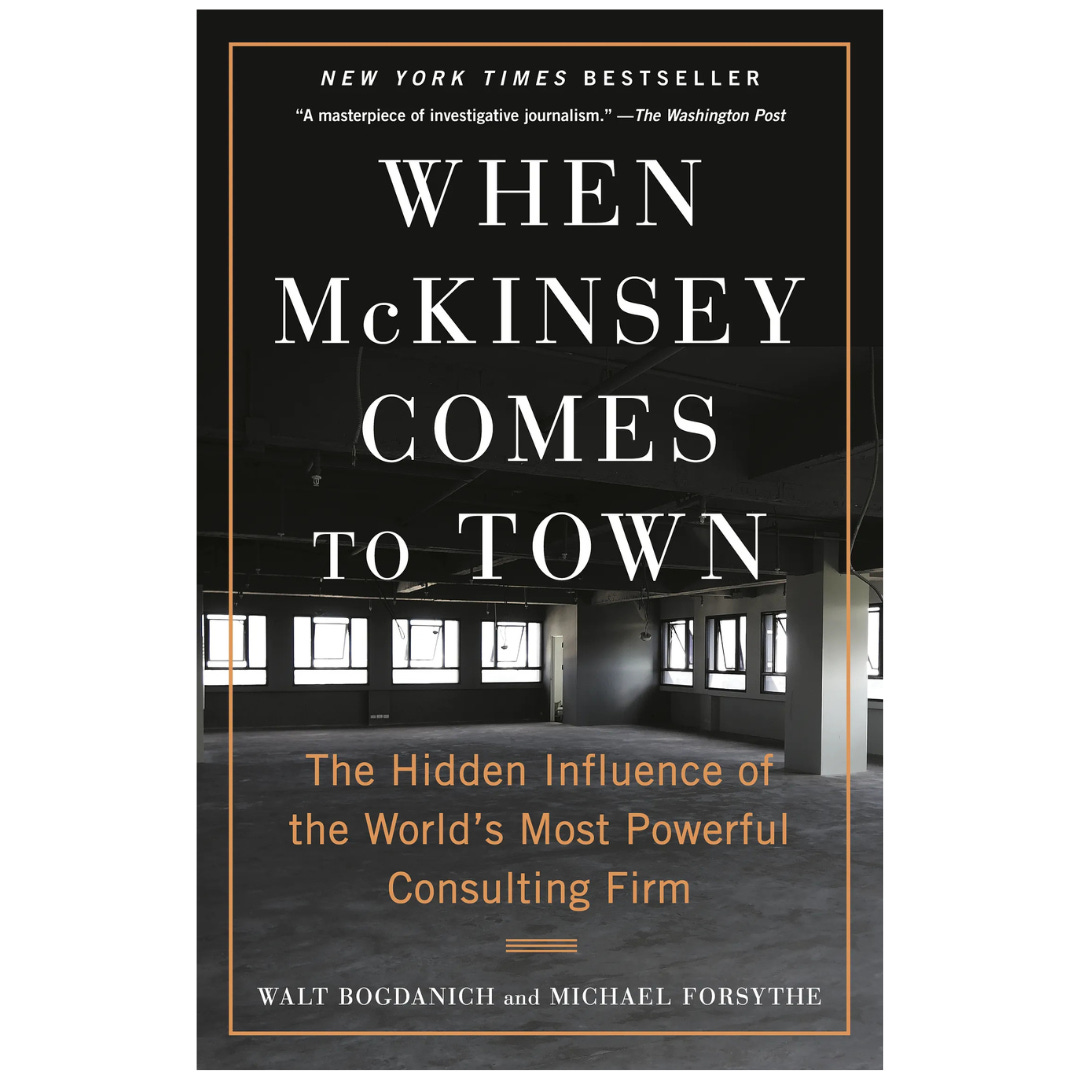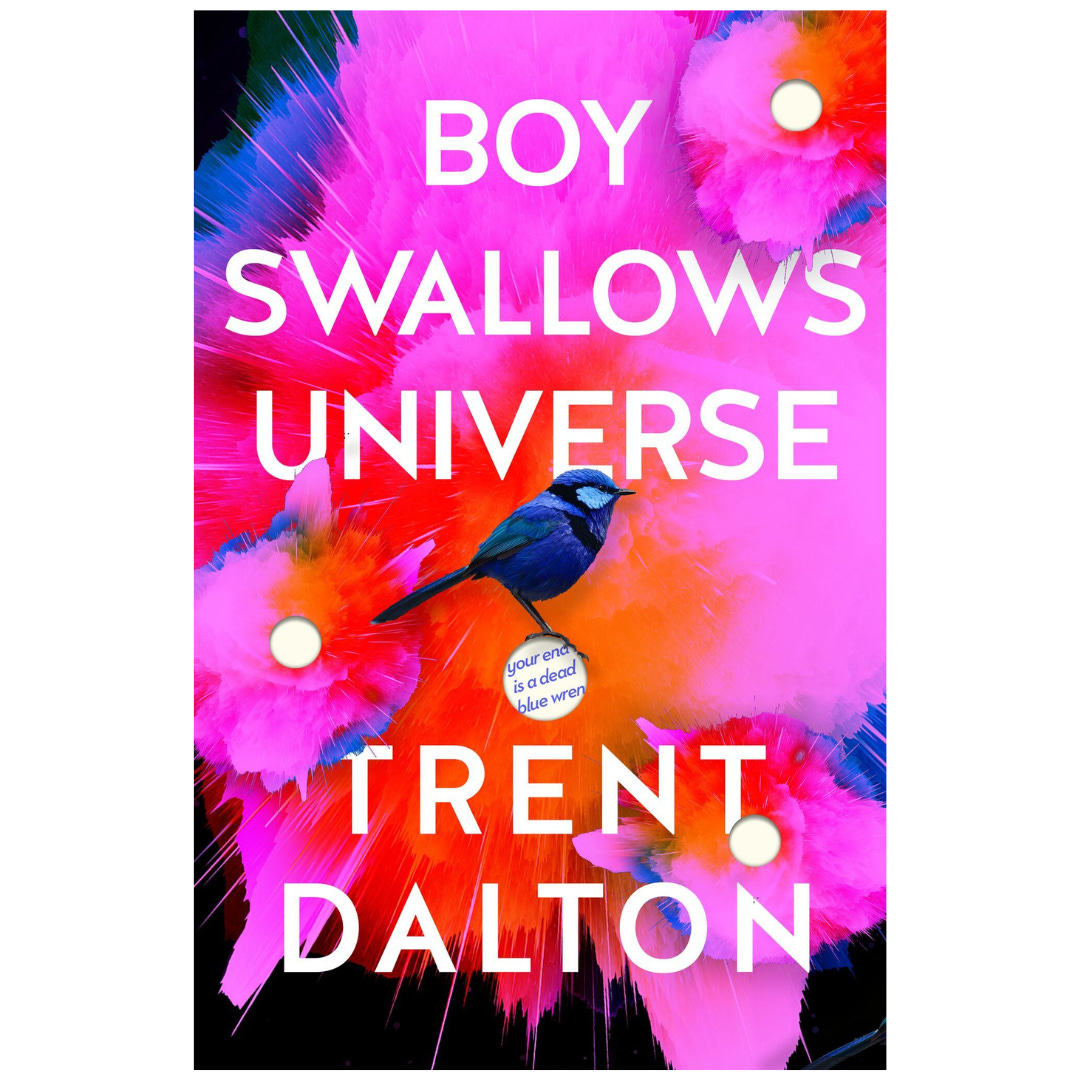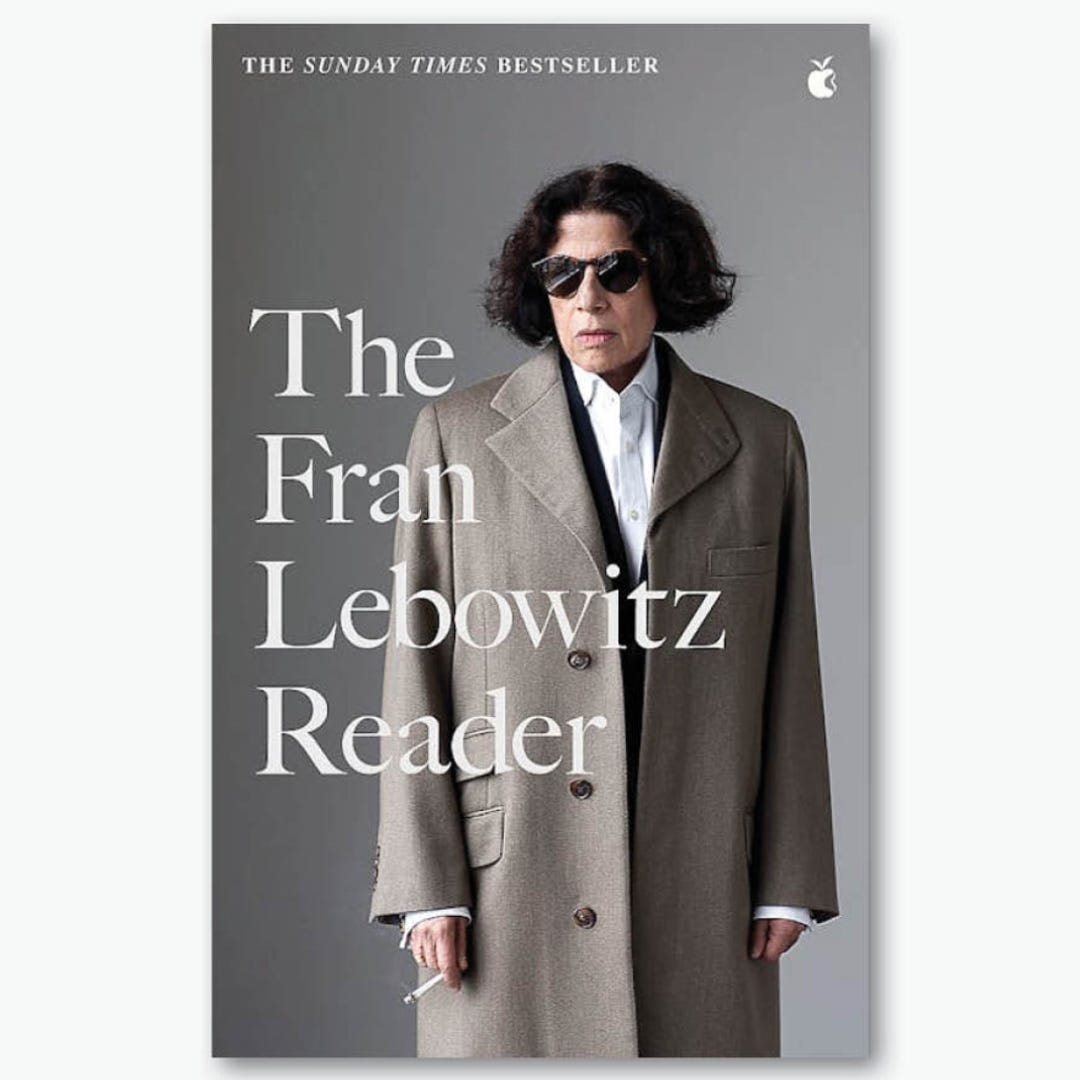My top reads of '24
As my New Year involved a lot of lying in bed recovering from Covid, I had plenty of time for reflection. Aside from the general ‘What am I doing with my life?’ musings, I reviewed the books I’ve read this year and what I gained from them, which I will share with you here.
The biggest takeaway from this exercise was that I actually didn’t read a great many books last year. Ordinarily I read at least a book a month, but last year I only read seven books plus a few halves. The rest of my reading time was spent on digital short-form reading, or listening to audiobooks on long drives - which is another way to enjoy books, but I find that I don’t retain the information as well.
Reflecting on this, I would say I get greater value from reading books over short form in terms of depth of understanding. Some of my reading time was misspent on articles that were interesting in a shiny ‘ooh’ sort of way, but were not particularly edifying. This year I want to be more intentional about what I spend my reading time on - less picking up the phone, more picking up books.
Here are my top reads from 2024 and how I rated them.
When McKinsey Comes to Town: The Hidden Influence of the World's Most Powerful Consulting Firm, by former New York Times investigative reporters Walt Bogdanich (Pulitzer Prize winner) and Michael Forsythe.
Rating: An important read to build out your understanding of how the profit-at-all-costs imperative shapes corporate and government culture and decision-making.
An exposé revealing international consulting firm McKinsey & Company’s vast influence on governments and corporations. Matt Taibbi famously described Goldman Sachs as "a great vampire squid wrapped around the face of humanity, relentlessly jamming its blood funnel into anything that smells like money." This is same kind of the thing, but more of an internal parasite that tentacles throughout the body sucking life force from its host, undetected. I first heard about this book via Toby Rogers, who questions the role that McKinsey & Co. may play in the machinations of the deep state. Read Toby’s in-depth review of the book here.
Milk: The truth, the lies and the unbelievable story of the original superfood, by Matthew Evans, Australian chef turned regenerative farmer and food advocate.
Rating: If you have questions about milk, this book has all the answers.
An entertaining, yet also deeply informative read, written by a man who clearly loves milk in all its forms. Evans takes an even hand, exploring the nutritional, ethical, and environmental pros and cons of ‘alternative’ and lab-made milks alongside raw and pasteurised milk. My best takeaway - if you cannot access safe raw milk (direct from a trusted farmer within hours of milking), find milk that’s been pasteurised ‘low and slow’ as opposed to high speed, high heat.1
Boy Swallows Universe, loosely based on elements of Australian author Trent Dalton’s own life.
Rating: Perhaps one of the most extraordinary novels I’ve ever read, this book reignited my love of fiction, which I have neglected over the past few years.
There’s a reason this novel won a slew of prizes and has been reimagined as a Netflix series. Set in 1985 in a Brisbane suburb rife with drug dealing and gang violence, it’s a coming of age tale woven with elements of crime caper, family tragedy, gorgeous prose, spiritual themes, and boyish romance. At the risk of sounding like a literary jerk, the sense of place in this novel is really something - it’s palpably the Australia of my childhood.
The Fran Lebowitz Reader, by professional cranky New Yorker, Fran Lebowitz.
Rating: If you like your humour dry as a desert, you’ll love this.
This is one of the books I half-read this year, but that’s because it’s most enjoyable to read a couple of essays at a time when you feel like some light relief. Lebowitz has famously had writer’s block since the mid-90s, and has since been touring the world on speaking tours on which she says irritated New Yorker things and everyone laughs. I saw her speak in Perth last year, where she answered an audience question - ‘What advice would you give to a young Creative who is just starting out? - in characteristic deadpan fashion: “First of all, Creative is not a noun…”
The Surrender Experiment: my journey into life’s perfection, by spiritual teacher Michael A. Singer.
Rating: Thought-provoking, and inspiring if ‘acceptance’ and ‘surrender’ are qualities you would like to cultivate.
Michael Singer is the author of that other famous best-seller, The Untethered Soul. In this book, he shares his experiment with surrendering to the flow of life instead of fighting it, or trying to control it, with the ultimate goal being to get peaceful. I listened to this one rather than reading, and though I generally prefer reading paper pages, listening allowed the story to wash over me, which had the effect of softening my intellectual defenses (yeah, but…). The thrust of this book couples with another story I revisited last year, the story of the Chinese Farmer (narrated by Alan Watts here), which teaches that we often judge events/circumstances when it’s too early to tell whether they will work out well for us, or not. Kurt Vonnegut summarised the idea best in one of my favourite quotes from his memoir, A Man Without a Country:
“And if I die - God forbid - I would like to go to heaven to ask somebody in charge up there, ‘Hey, what was the good news and what was the bad news?’”
What were your top reads last year? Tell me in the comments…
To support my work, share, subscribe, and/or make a one-off contribution to my Kofi account. Thanks!
If you’re in Western Australia, as am I, you can buy ‘low and slow’ pasteurised milk from Bannister Downs Dairy, available at independent grocers.








Now to actually address the article's request for my impactful 2024 reading, I felt like I read too much on Substack and not enough physical books. That said, there were three standouts from my 2024 booklist:
1. The Real Anthony Fauci, by R.F.K. Jr.
Love him or hate him for his politics, R.F.K. (and his team) really knows how to dig into the facts behind medical propaganda. I think the book is less about Fauci and more about the overarching corruption inherent in the modern allopathic industrial complex, from cancer to COVID. He details deliberate pandemic mismanagement, profit over health, fake pandemic 'templates', using killer drugs to emulate the diseases they 'treat', and he even wades into the "no virus" debate championed in the HIV era by the Perth Group. His chapter on Burning the HIV Heretics was also the model used by Fauci & co. to censor dissenters of the COVID era propaganda. The end of the book details specifically Fauci's medical trial atrocities in America, Africa, India and other places of the world; hyping fake pandemics and 'Germ Games'.
It is a must read for those who want a detailed, fact-packed peek behind Fauci's career as chief medical regulator, and how that man single-handedly gave the world's most influential nation some of the worst health outcomes of all nations.
2. Own Your Self by Kelly Brogan
Intially turned off by her opening dedication to 'alchemy', I persevered through Brogan's detailing of false diagnoses in the psych industry and discussing mechanisms of self-healing. A summary might be, "Your body has everything in it already to heal you; let it work!" The most important chapter (for which I took detailed notes) was chapter 5, Five Psychiatric Pretenders, where she detailed thyroid disfunction, gluten and casein sensitivity, blood sugar instability, vit B12 deficiency, and prescription medications as the major causes of common psychiatric conditions for which useless psychiatric medicines may be prescribed to the very unfortunate.
This book aligned surprisingly closely with what I was to learn at Dr. Sanggu Lee's NEWSTART healing camp in Mt. Seorak, South Korea, namely, that your body can heal anything you set your mind on. Modern allopathic medicine only understands this fact as a byproduct of the placebo effect.
3. Muscle Control by Maxick (1912)
This short book, out of print but freely available out of copyright on archive.org, was introducee to me by Jonathan Charles over at Nerve & Muscle here on Substack, set me on my current path to health and fitness using Maxick's century-old muscle building method he and his business partner, Monte Saldo, called Maxalding. By performing specifically posed, consciouslly controlled muscle flexing AND muscle relaxation, one can freely tone and bulk the body using mental effort alone. As such, Maxick's exercise regime is largely non-apparatus, and seeks to coax specific, isolated muscle contractions and relaxations to enable full flexibility and power of individual muscles and groups of muscles. Maxick stresses that exhaustion is antithetical to muscle growth; nourishment is what builds muscle, and the focused mind is what fully directs the nourishment of the body.
I thought this method of exercise surely would not work, but having performed it exclusively for some 6 months now I can not only personally confirm, through my own increase in tone and muscle mass, Eugen Sandow's declaration that "It is the brain which develops the muscles" (Sandow [1897], Strength and How to Obtain it, p.13), but that this energising form of exercise should be learned by everyone at childhood, and carried through the entire life. It feels like cheating, to exercise so gently and yet see the fat fly away and muscles I never had (like serratus magnus and intercostals) develop before my own eyes. And not only that, my mental health has improved remarkably with the constant, daily exercise of my nerves and body-electric system. No wonder Maxalding has sat lost and forgotten by the world for more than a century.
Happy and healthy 2025, Rebekah!
On my 2024 reading list:
1. Feminism Against Progress — Mary Harrington
Mary is an astonishingly talented writer, and in some respects it's surprising that she chose to wade into this topic, but I've heard her talk about the book in interviews and it seems like she genuinely has a very interesting, new take, so I want to read that this year.
2. The End of Everything — Victor Davis Hanson
VDH's latest book, just came out last year. The Dying Citizen is truly an outstanding book that everyone should read (imo), so I really look forward to reading this next one.
I would also like to read The Second World Wars this year, if I have time, which is co-authored by VDH. That one is back in his other mode as a military historian. Reviews of it are excellent, might try to squeeze it in on audiobook.
3. A Revolution Betrayed — Peter Hitchens
Bit of a nice topic, the British education system, but Peter (like his brother) is an excellent writer who always has something interesting to say. I really enjoyed Abolition of Britain an Unconventional Wisdom, so I plan to read this one, but maybe I'll do it on audiobook. After finishing this one I want to read the new book by Matt Goodwin (due to come out this year) which will touch on the same topic.
4. The Queering of the American Child — Logan Lancing & James Lindsay
Came out last year, very highly reviewed so I expect it to be as compelling as Cynical Theories.
5. On Democracies and Death Cults — the new Douglas Murray one that comes out in April
6. Letters to a Young Contrarian — Christopher Hitchens
Not a recent book, but one of the few Hitchens books that slipped through the net and I still haven't read it. It seems very appropriate to read in our current time, being that it's a book about exploring contrarian views and how to debate and dissent peacefully yet effectively.
...And there are a couple of books I've already read that I want to revisit this year, including:
— America Alone, and After America, both by Mark Steyn. Man was he was prescient!
— Arguably, by Christopher Hitchens (the book of essays)